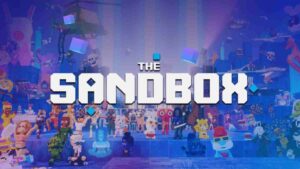The Pudgy Penguins brand, originally known for its collectible NFT avatars, is taking a bigger step into interactive content. Its latest project, Pengu Clash, introduces a skill-based Web3 fighting game built on the TON blockchain. Unlike passive earn-to-play models, this one is focused on active gameplay and competitive matchups.
This isn’t just another tap-to-earn experiment. Pengu Clash puts its characters into real-time combat, emphasizing movement, timing, and reflex over token staking or idle mechanics. It’s designed to test players more than wallets, which marks a shift in tone from many previous blockchain-linked titles.
Gameplay centers on fast-paced real-time combat
Pengu Clash is structured like an arena brawler. Matches are short, direct, and focused on one-on-one or small-team duels. The controls lean toward mobile responsiveness — simple directional movement and attack inputs, with cooldowns for abilities and dodge mechanics.
Combat speed is the core differentiator here. The game leans into twitch-based timing and reactive play, aiming for something closer to Brawl Stars or Battlerite than slow strategy or auto-battlers. There’s no pre-battle prep or meta layer to hide behind. You either outplay your opponent in real time or you lose.
This gameplay-first approach helps sidestep some of the usual Web3 balancing issues. If the mechanics hold up, performance can actually matter more than asset ownership.
Blockchain integration through TON
Pengu Clash is built on the TON blockchain, which is Telegram’s native chain. That choice isn’t random. The game is designed to work tightly with Telegram’s interface and user base, which could make onboarding smoother for non-crypto natives who already use the app.
On-chain elements include character ownership, rewards distribution, and stat tracking. Match outcomes feed directly into player progression and unlockables, with in-game achievements and seasonal rewards tied to blockchain-verified performance.
At launch, tokenomics are being kept light. There’s no complex economy yet. Most of the Web3 integration revolves around identity and tracking, not yield farming or token inflation. Whether that holds long-term will depend on how future updates handle monetization.
A brand extension with mainstream reach
What makes Pengu Clash interesting isn’t just the gameplay or blockchain integration. It’s the fact that it’s coming from Pudgy Penguins, a brand that has already spent time building social presence, merchandise, and physical product lines. That means the game isn’t just standing on token speculation — it’s tapping into a broader ecosystem.
The goal seems to be expansion. Bringing Pudgy Penguin IP into an interactive format adds utility to existing assets, but it also opens the door for wider audience engagement. It’s part of a growing trend where NFT-native brands are shifting toward more traditional media models to sustain long-term relevance.
Pengu Clash isn’t aiming to be the next major esports title, but it is trying to prove that a Web3 game can focus on actual gameplay first — and maybe even be fun on its own terms. For now, that’s enough to set it apart.
Web3 Analyst & Play Blockchain Games Guide
CryptoKit breaks down Web3 gaming like it’s second nature. From tokenomics to airdrop strategies, she turns blockchain chaos into clear, actionable advice for players who want to win more than XP.




